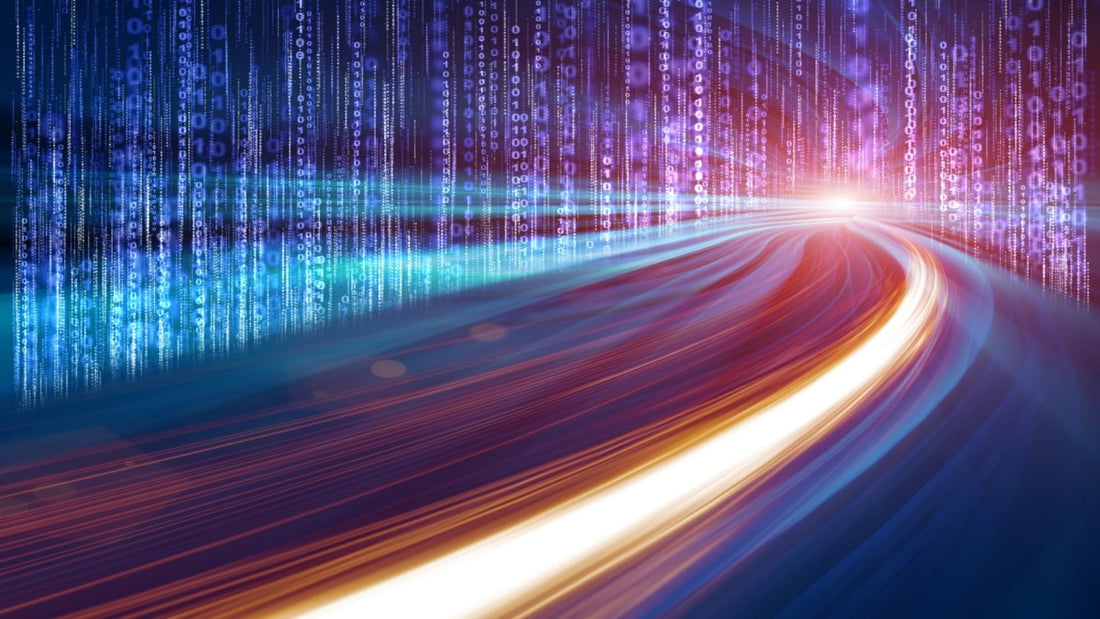Dive into Python, hailed as the language of the future! Discover why its simplicity, versatility, and robust libraries make it the best choice for AI, web development, data analysis, and more.

If you don't know your programming languages, Python has been the de facto solution of choice for a large number of software engineers for some time now. But why? What makes this specific language so special?
And, most importantly, is Python the language of the future? This depends on the purpose and who you ask.
Confused? You don't have to be because we're going to break this all down into the simplest terms. But first, let's talk about what Python is.
What is Python?
As you've probably already guessed, Python is a computer programming language. But Python is not just any programming language. Python is a general-purpose language, which means it can be used for just about anything.
Python was released in 1991 and has a philosophy that emphasizes code readability. By making use of highly readable code (Python syntax uses English keywords), virtually anyone can learn this language quickly.
What does that mean? Let me show you by way of example.
There is a program that everyone learns from the beginning of their journey into software engineering. This program is called “Hello, world!” This program does one thing: it prints the phrase Hello, World!. And that. If you wanted to write this program in C++, the code would look like this:
#include <iostream>
int main {
std::cout << “Hello World!”;
return 0;
}
This same Python program consists of a single line:
print(“Hello, World!”)
As you can see, the Python version of the program is much simpler than the C++ version.
Now imagine how quickly a Python developer could create web applications for your company.
High readability and simplicity are not the only things that set Python apart from some other languages. Python is also an interpreted language. What does that mean? Many languages require you to compile your code before the application can run. So you write the code, compile it, and then run it. With Python, the compiler is removed from the equation, so you just write code and then run it.
Python is a great language for web development. Why? The list of reasons is considerable and includes:
- Portability
- Prototyping
- Asynchronous coding
- Large standard library
- Easy enterprise application integration
- Application and server-side scripting
By taking advantage of the Django or Flask frameworks, you can create powerful web-based applications and scalable projects that can also interact with popular databases (such as MySQL and PostgreSQL).
Now that you have a basic understanding of what Python is, let's see why it can be considered the language of the future.
Getting started with Python
As I've said many times, Python is an ideal language for beginners. Because Python's syntax is so easy to understand, it removes a significant barrier to entry for new developers. And while Python is most widely used for web development (which is a great place for new engineers to start), with the availability of the NumPy and SciPy packages, you can also easily apply Python to science, math, and engineering files. . This means that those working in these areas of research do not need to spend a lot of time familiarizing themselves with traditional programming methods.
But usability doesn't stop there. Python is also adept in the areas of machine learning and AI. With packages like TensorFlow, PyTorch, scikit-learn, and OpenCV, Python makes keeping up with advances in modern technology not as difficult as you think.
But it's not just about individual Python developers learning the language. Companies interested in taking advantage of machine learning, artificial intelligence, data science, and web applications will do well when hiring Python developers. These new engineers will be able to take your website (and other offerings) to new heights you wouldn't have considered otherwise.
So whether you're an individual engineer or a company looking to add the right language to the mix, you can't go wrong with Python.
Is Python future proof?
What does future ready mean? Simply put, it means that something is unlikely to become obsolete in the near future. In today's technology landscape, languages, apps and services come and go faster than ever. Your company could design and launch the perfect app or service, only to find that it doesn't gain traction or quickly loses its appeal.
While Python won't last forever, it has a long life ahead of it. But because Python is so versatile and easy to use, there will always be a huge number of developers and a seemingly endless parade of use cases. Python sits somewhere between a scripting language and a full-fledged programming language, which makes it even more flexible and therefore future-proof.
How flexible is Python? The CIA used Python for hacking, Pixar used it for film production, Google used Python to scrape data from web pages, and Spotify used it to recommend music to users. These institutions are not going away anytime soon, and the likelihood of them finding a better replacement for Python is slim.
What does this mean for your company?
Once you start employing Python developers, the fruits of your labor will last a long, long time. This is important because it means your company won't have to constantly reinvent its own wheel – which translates into cost savings.
What better reason do you need for a programming language?
Conclusion
If you liked this article, check out one of our other Python articles.
- 8 Best Python Libraries for Data Science
- 8 Best Sentiment Analysis Libraries in Python
- Python Poetry: A Poem for Python Dependency Management
- Python development trends
- Why use Python?
Source: BairesDev




















































